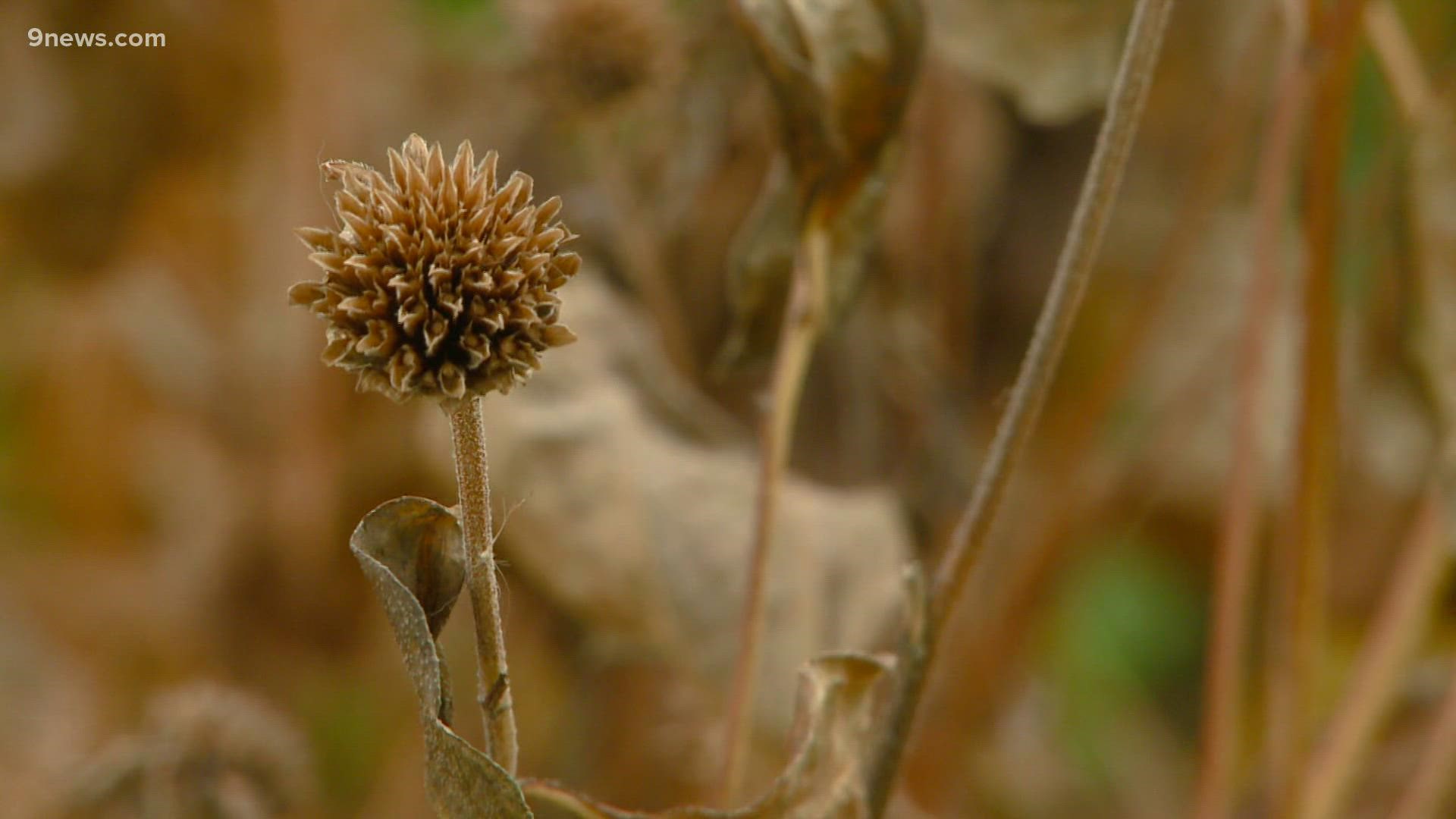DENVER — Saying farewell to my garden is always bittersweet, but this sensational fall weather has helped me cross things off my fall to-do list which I find so gratifying.
For everything you need to do in your fall garden, there are some things that you shouldn't do, so let’s review.
As your cleaning up your leaves, don’t send them away to the landfill. Leaves are the building blocks for healthy soil. They lighten heavy soil, insulate the crown of plants, protect tender plants, and help retain much need moisture. Through the winter let Mother Nature do the work. Leaves will crumble and decompose, nourishing the soil and benefiting earthworms.
On your lawn, simply mulch the leaves right on to the lawn. Let the leaves in your flower beds stay there or put them through a chipper and spread them around. This is especially important for newly planted perennial beds.
If you have or are starting a compost pile, leaves are a great addition to help balance food scraps and plant materials that are higher in nitrogen. Leaves also help your compost pile from getting compacted and soggy. If you don’t compost at home, check with your local municipality. Many now have excellent compost programs that citizens can participate in.
Don’t be a fussy fall gardener. Save the clean-up and trimming for spring. If you cut back perennials and grasses now, you’re removing much needed seeds for birds and many varieties of perennials and biennials self-seed, (for example Coneflowers, Columbine, Sea Oat Grass, Milk Weed, Snapdragons, and Bumble Bee Daisy).
And fall is never the time to trim your roses. Trimming your roses encourages growth and fall/winter is the wrong time for that. Instead, protect your roses with a layering of leaves to protect the crown.
As much as I’m loving this mild weather, I know my garden needs watering. Fall and winter watering is crucial in Colorado. A majority of our plant loss is caused by dry winters. Obviously, you can’t use your sprinkler system now, you need to hook up the hose and water your trees, shrubs, and perennials. Especially if they have been newly planted this season! Just make sure to disconnect the hose when you’re done.
Raking, digging, mulching, and watering now will benefit your garden in the spring making it easier to care for every year.
There is so much beauty in your fall and winter garden, you just need to look a little harder for it.
More Proctor's Garden:
- Here are the plants you should be saving before the first frost
- Fall is for planting
- Try this to keep summer herbs fresh into winter
- So many daisies
- Add color to your fall garden
- Gradual sun exposure can help your garden thrive
- These plants can flower 365 days a year if cared for properly
- How to save water and have a beautiful garden
> Top stories curated daily just for you! Sign up for the 9NEWSLETTER to get can’t-miss stories, Next and Broncos content, weather and more delivered right to your inbox.
SUGGESTED VIDEO: Proctor's Garden

